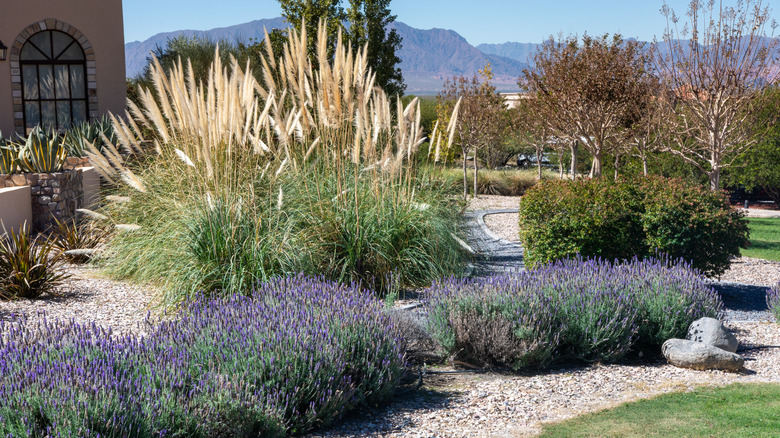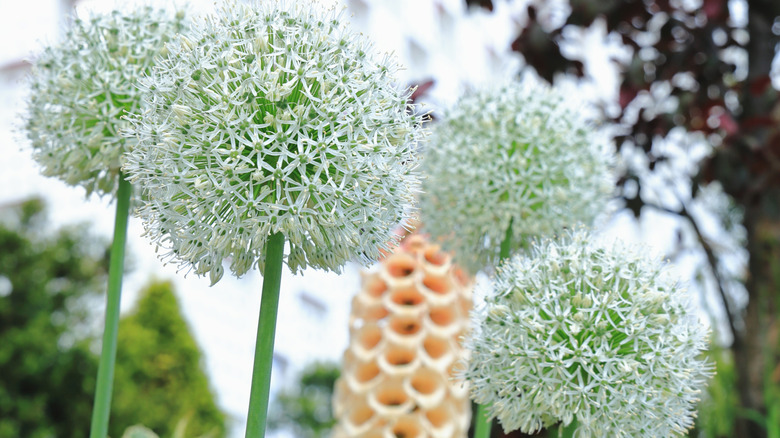The Dependable Bloom That Adds Height And Drama To Dry Gardens
If you have a dry garden with sandy soil, it can be a bit challenging to find interesting plants that will not only thrive under these conditions but also look fabulous at the same time. To add both height and drama to your arid landscaping, there's one dependable bloom that you're absolutely going to love — an ornamental onion cultivar called 'White Giant' (Allium stipitatum 'White Giant'). The plants actually go dormant during the heat of summer, so there's no need to water them; this is why they're perfect for dry gardens. What's even better is that this outstanding perennial will reliably bloom year after year once you've planted the bulbs in your xeriscape.
'White Giant' grows happily in USDA zones 4 through 8 and produces glossy green, strappy leaves in spring, followed by large white globular flowers on stems that can reach lofty heights of 4 feet. These stunners will definitely add an eye-catching display to any landscape. The flowers also do well in a vase and can even be dried. As an added advantage, thanks to their strong aroma, these ornamental onions are rarely bothered by deer or rabbits, making them one of the best flowering plants for your garden that are deer-resistant. You'll also appreciate the fact that the leaves of this hybrid have a nice upright growth habit and tend to stay green while the plant flowers. Once the blooms fade, the ensuing seed heads are also quite attractive and add more structural diversity to your yard.
'White Giant' are bulbs you can plant and forget
These ornamental onions are so easy to grow that they don't require any fuss after you've planted the bulbs. Just choose a nice sunny spot and plant the bulbs at a depth of one to two times the diameter of the bulb. Space your plants around 5 to 6 inches apart if you want to create a mass display of snowy white flowers. You should plant these bulbs during fall to create a pollinator paradise for spring while also adding some interest to your dry garden. Fertilize these ornamental onions in the fall or spring; any bulb fertilizer will do.
You'll find that this particular cultivar doesn't propagate quickly, so you don't even have to dig up the bulbs and divide them every year. While you can save money on expensive alliums by collecting their seeds and planting these, they will take at least three or more years to flower, so growing them from bulbs is really your best bet. Then you can just sit back and admire their gorgeous display once they reappear every spring.

